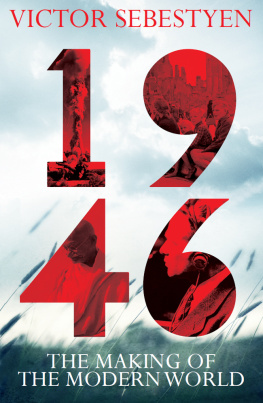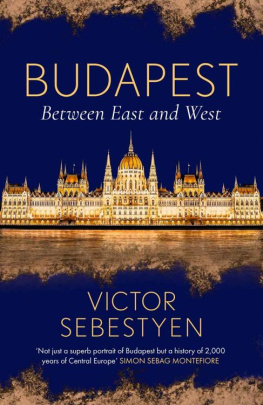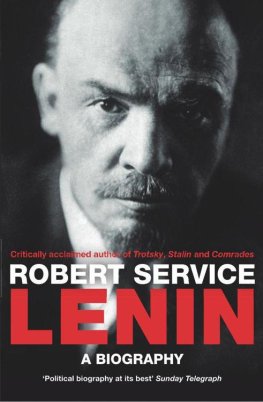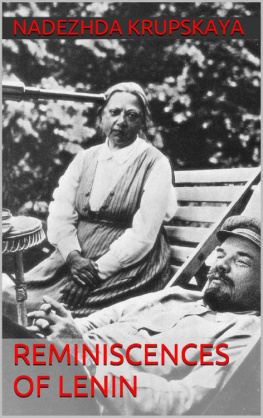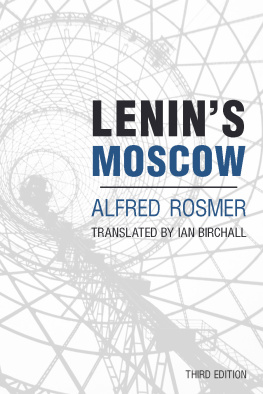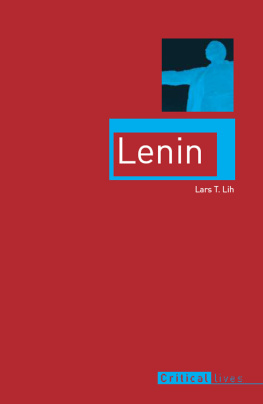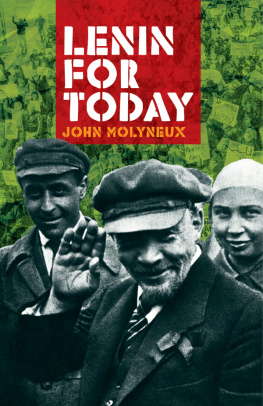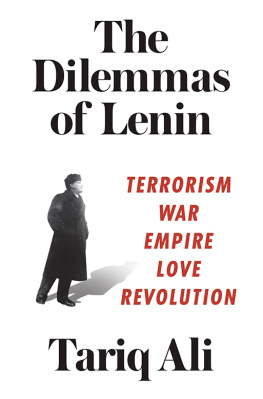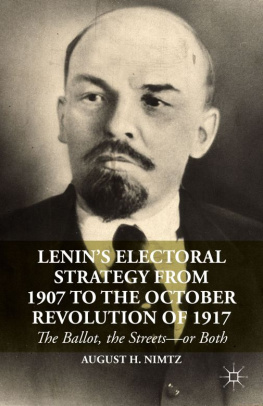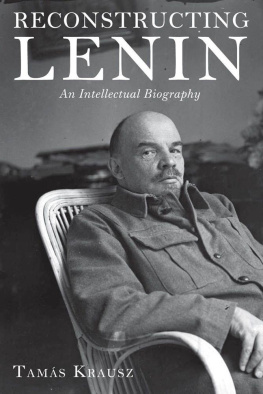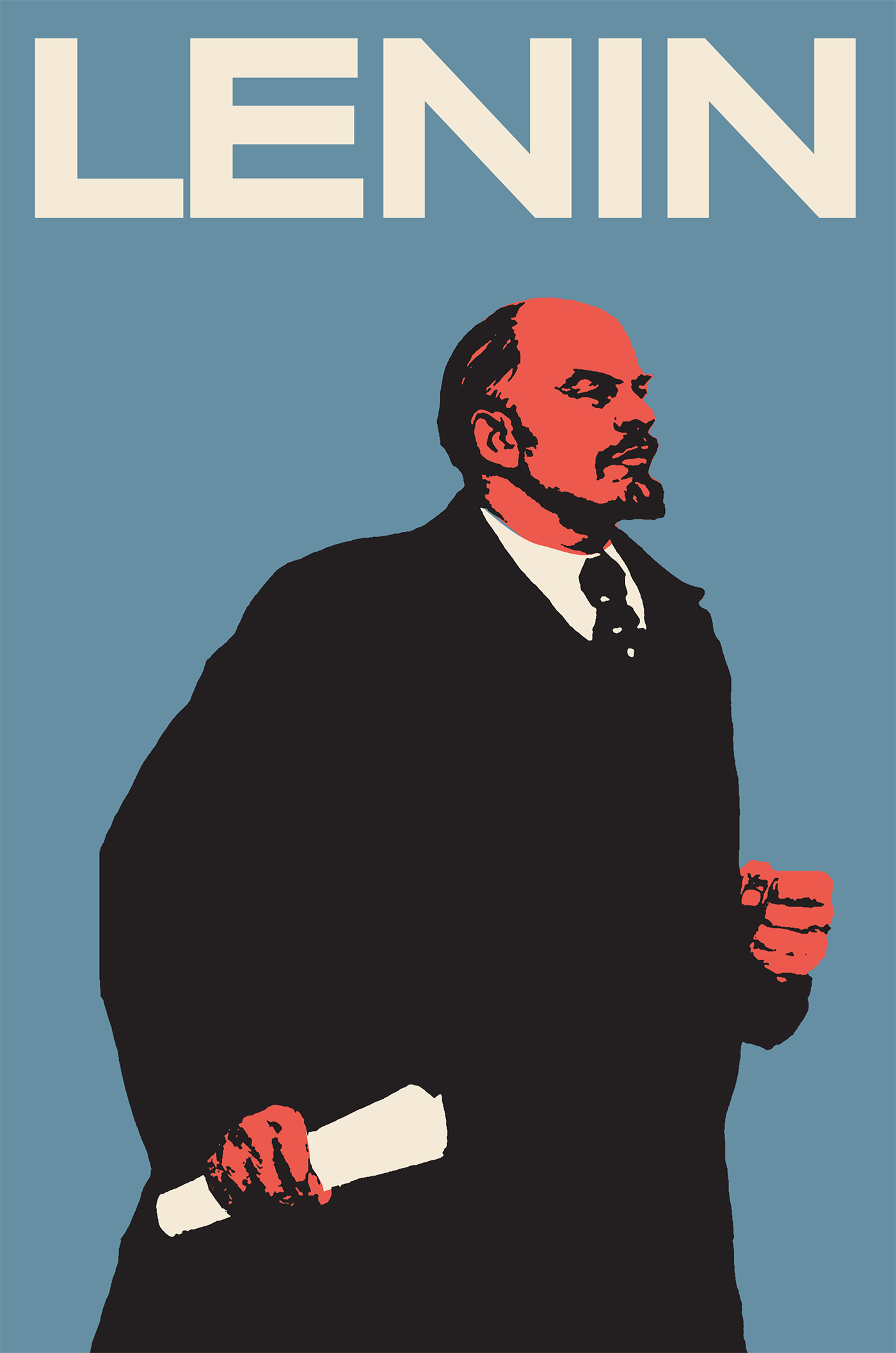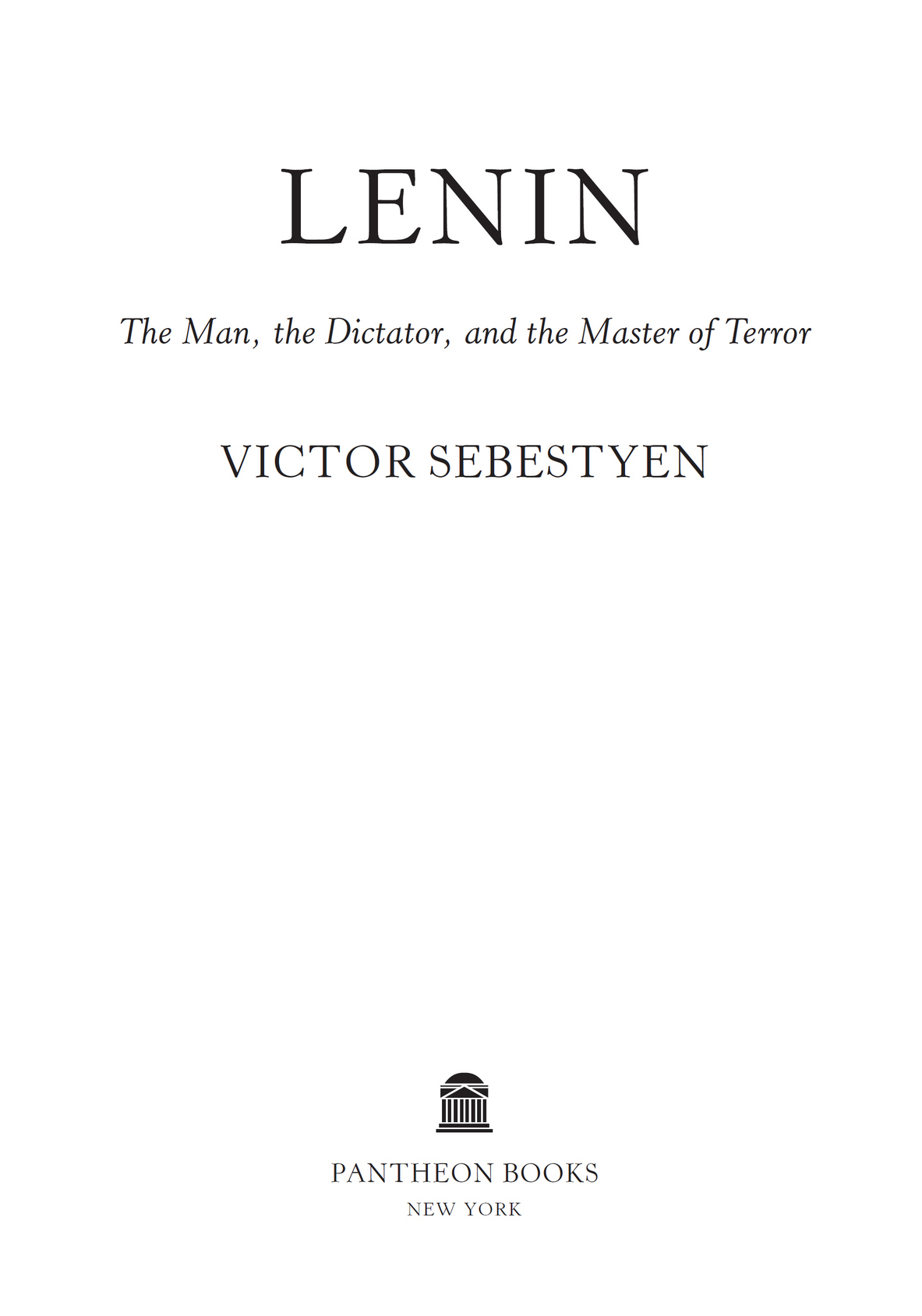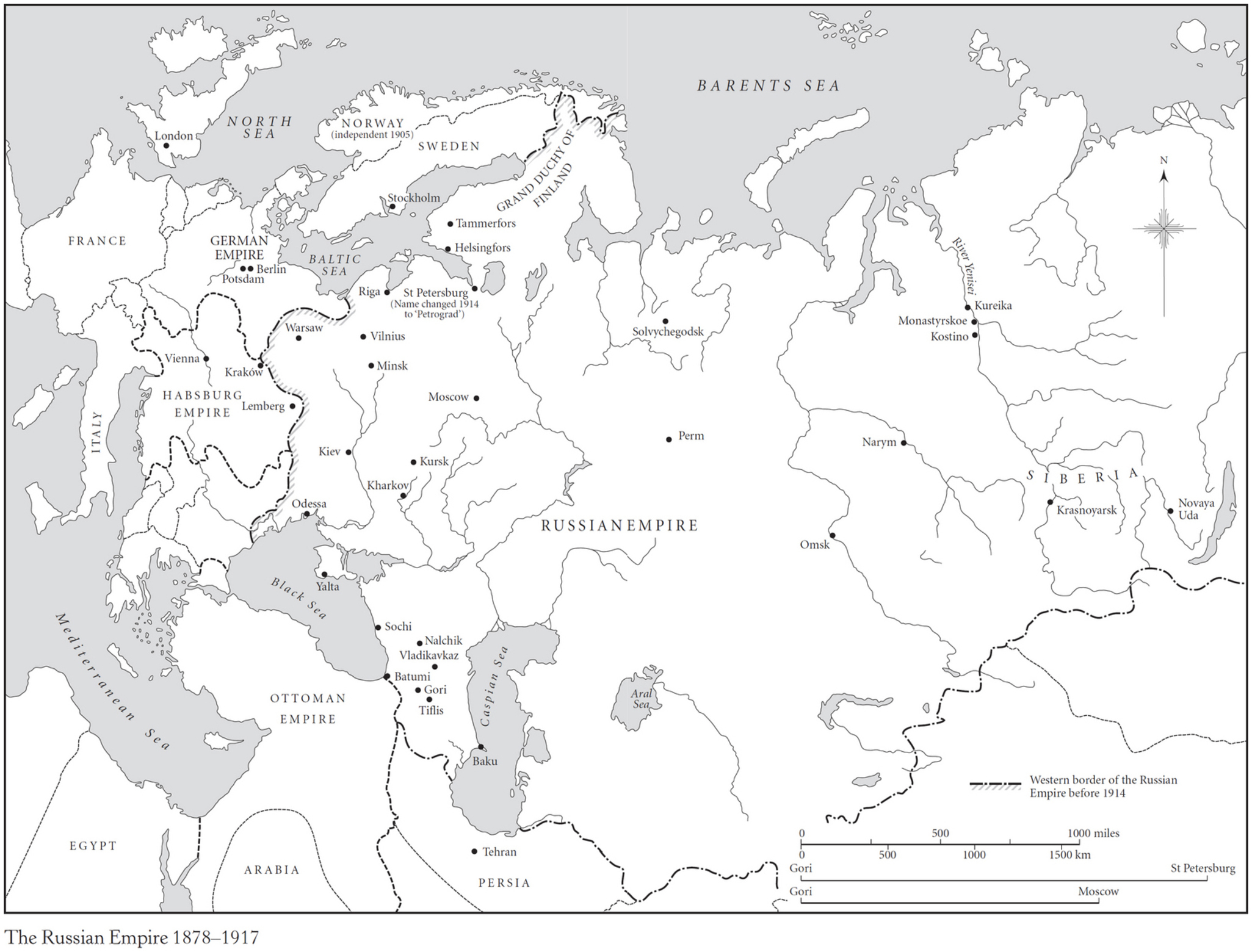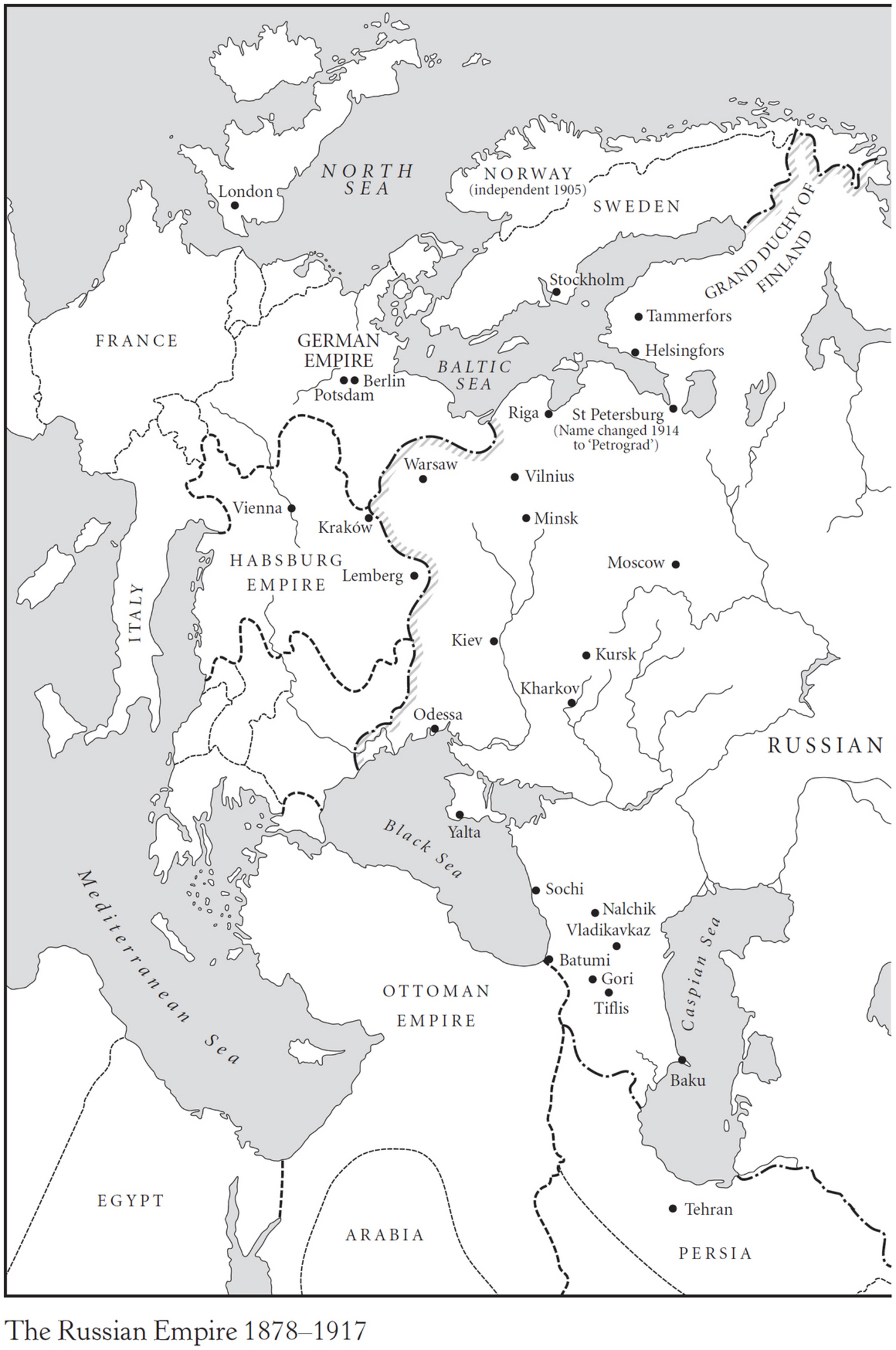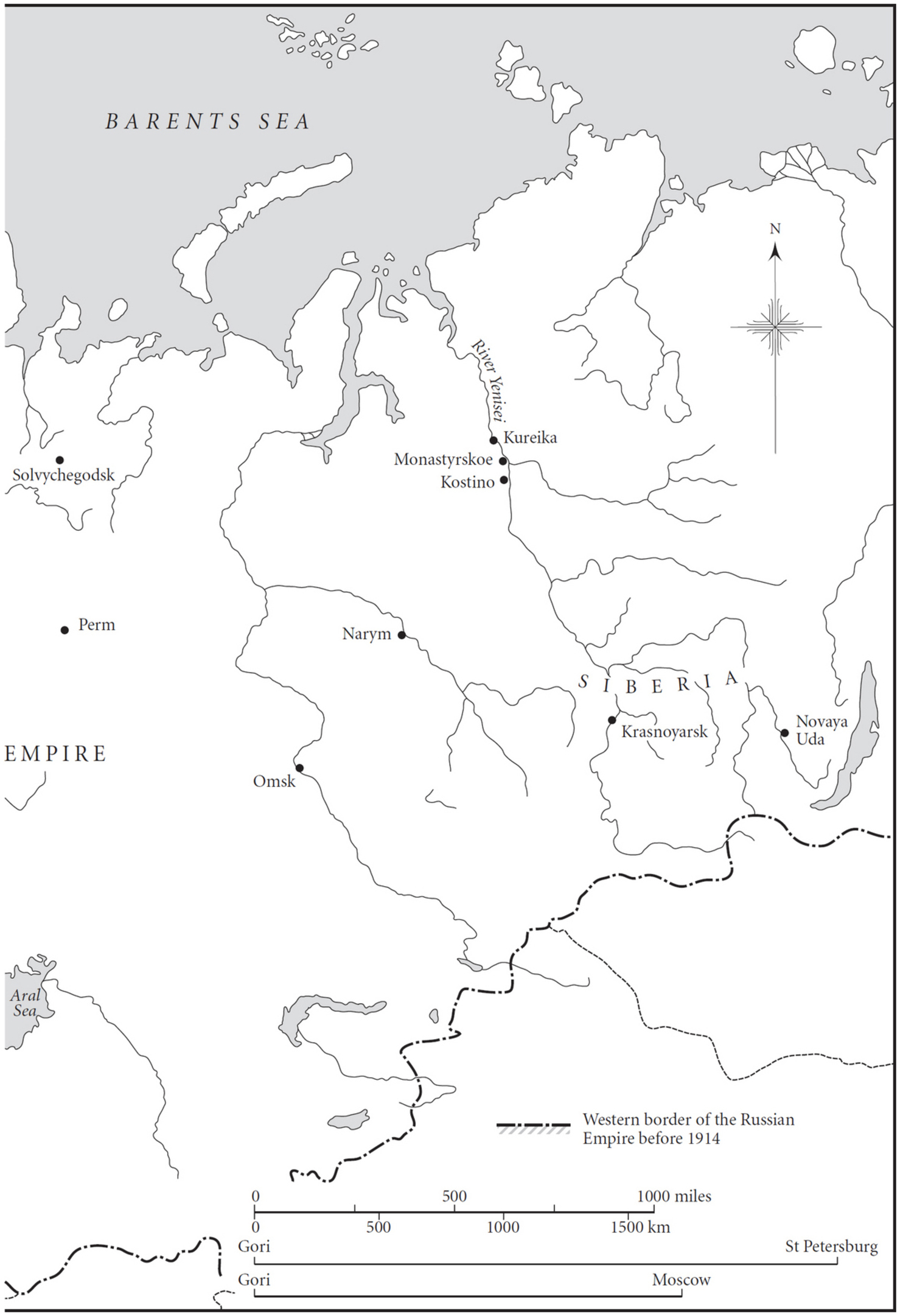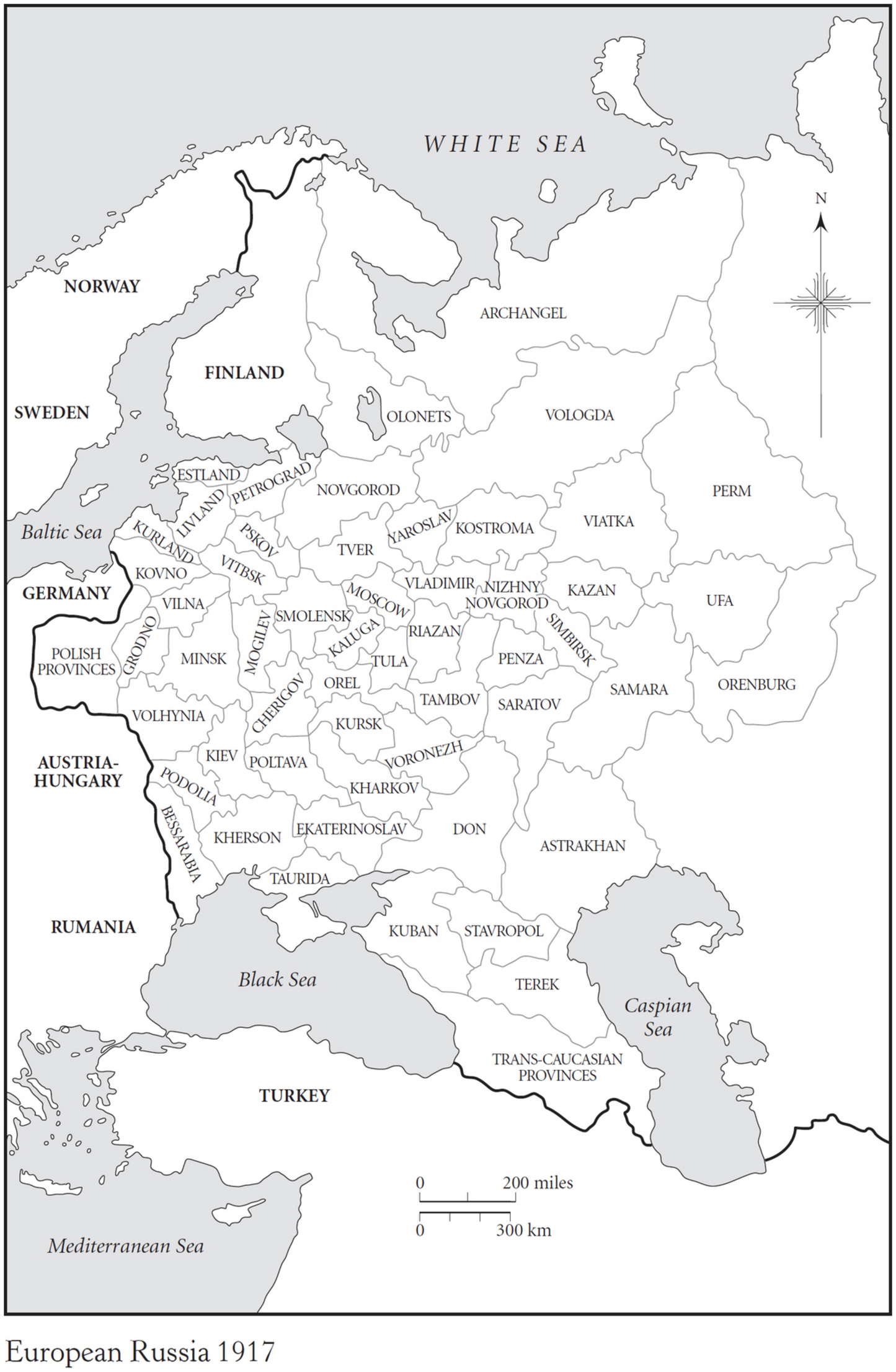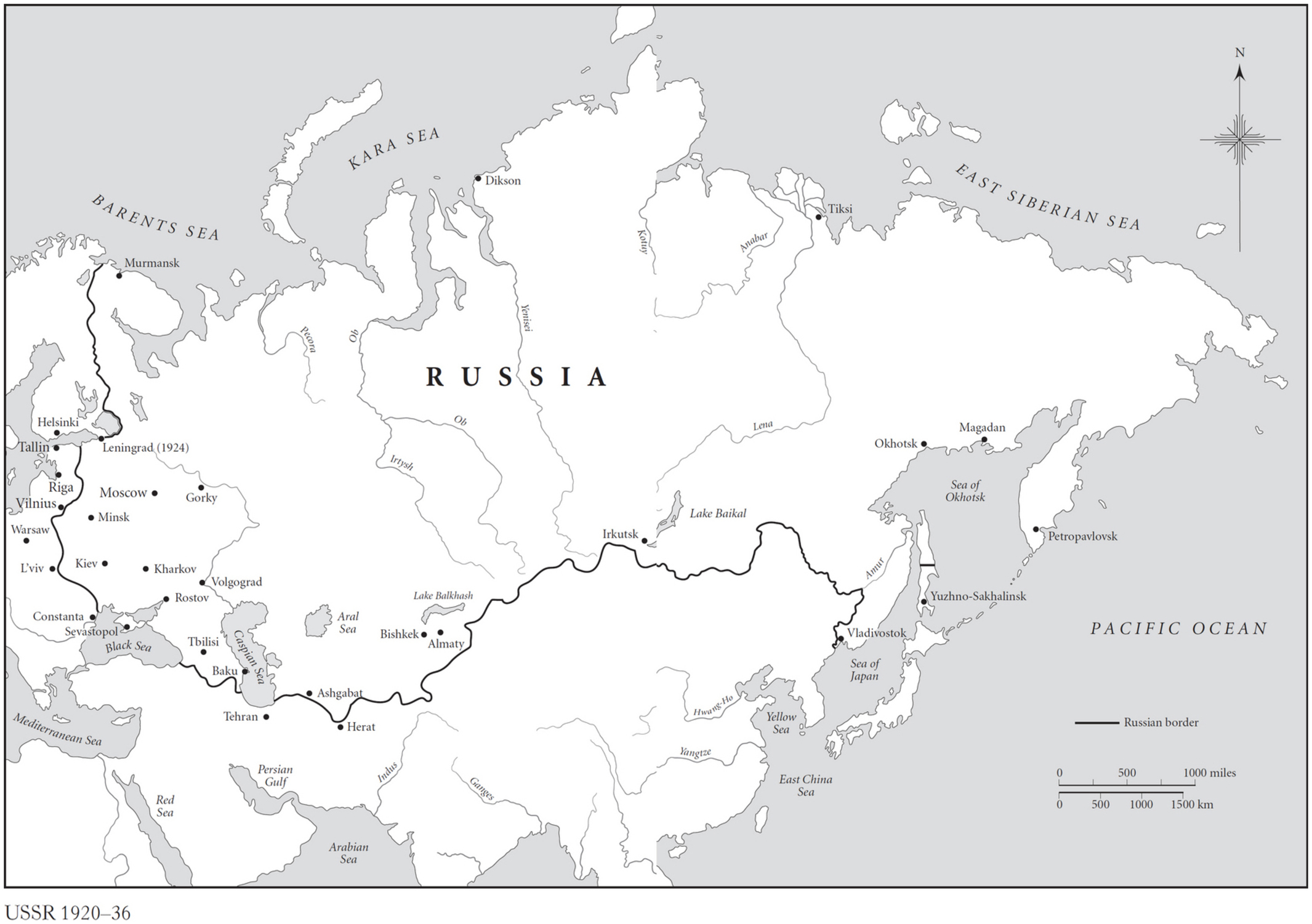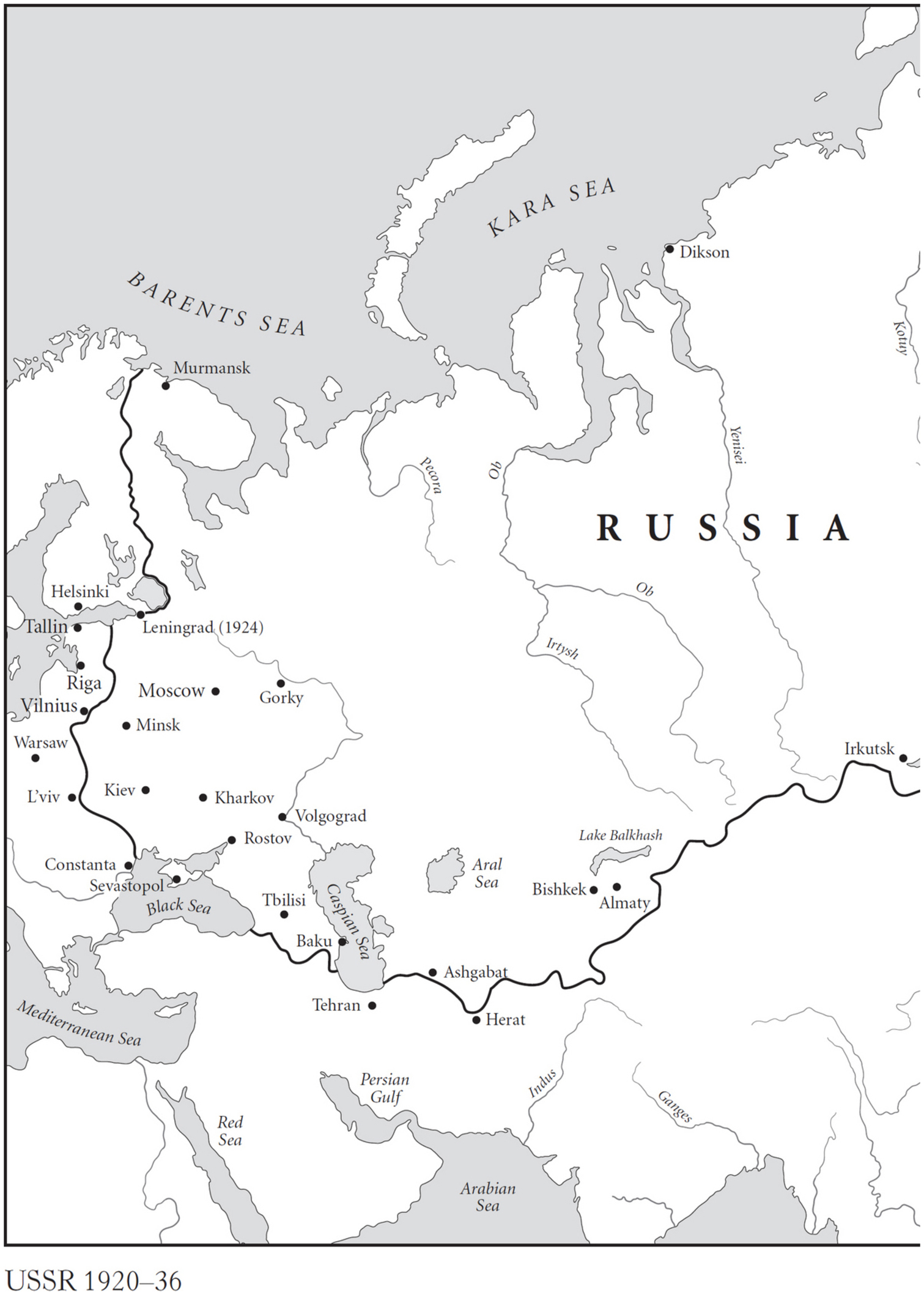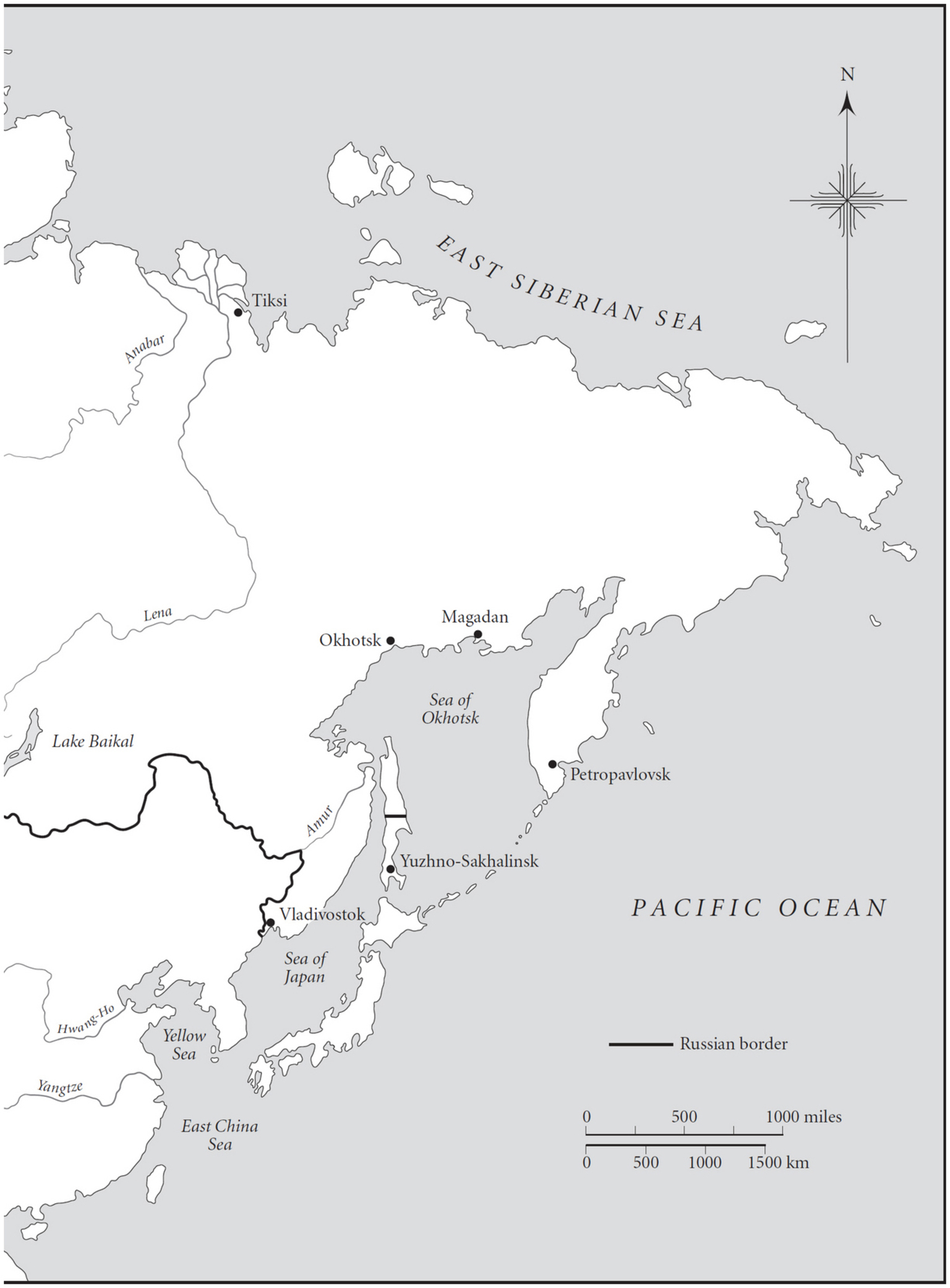Contents
Also by Victor Sebestyen
Twelve Days: The Story of the 1956 Hungarian Revolution
Revolution 1989: The Fall of the Soviet Empire
1946: The Making of the Modern World
Copyright 2017 by Victor Sebestyen
All rights reserved. Published in the United States by Pantheon Books, a division of Penguin Random House LLC, New York. Originally published in hardcover in Great Britain by Weidenfeld & Nicolson, an imprint of the Orion Publishing Group Ltd., London, a Hachette UK company, in 2017.
Pantheon Books and colophon are registered trademarks of Penguin Random House LLC.
Library of Congress Cataloging-in-Publication Data
Name: Sebestyen, Victor, [date] author.
Title: Lenin : the man, the dictator, and the master of terror / Victor Sebestyen.
Description: New York : Pantheon, 2017. Includes bibliographical references and index.
Identifiers: LCCN 2017008076 (print). LCCN 2017012234 (ebook). ISBN 9781101871645 (ebook). ISBN 9781101871638 (hardcover : alkaline paper).
Subjects: LCSH: Lenin, Vladimir Ilyich, 18701924Influence. Lenin, Vladimir Ilyich, 18701924Political and social views. Lenin, Vladimir Ilyich, 18701924Relations with women. Lenin, Vladimir Ilyich, 18701924Psychology. RevolutionariesSoviet UnionBiography. DictatorsSoviet UnionBiography. State-sponsored terrorismSoviet UnionHistory. Soviet UnionPolitics and government19171936. BISAC: BIOGRAPHY & AUTOBIOGRAPHY / Historical. HISTORY / Europe / Russia & the Former Soviet Union.
Classification: LCC DK254.L4 (ebook). LCC DK254.L4 S34 2017 (print). DDC 947.0841092 [B]dc23
LC record available at lccn.loc.gov/2017008076
Ebook ISBN9781101871645
www.pantheonbooks.com
Cover art based on an image from Corbis/Getty
Cover design by Oliver Munday
v4.1
a
In Memory of C.H.
Contents
List of Illustrations
Vladimir Ulyanov as a baby (PA Images)
The Ulyanov family in 1879 (Sputnik/Alamy)
Alexander Sasha Ulyanov (Sputnik/Topfoto)
Anna Ilyinichna (Interfoto/Alamy)
Maria Ilyinichna (Interfoto/Alamy)
Nadezhda Krupskaya, age twenty-one (TASS Photo Chronicle Photos/Tass/PA Images)
Vladimir Ulyanov police mugshot (PA Images)
Julius Martov (Jakov Vladimirovich Shteinberg/Bridgeman Images)
Leon Trotsky (Heritage Images/Getty Images)
Nadezhda Krupskaya, age twenty-six (Sputnik/Alamy)
Inessa Armand (ITAR-TASS Photo Agency/Alamy Stock Photo)
Grigory Zinoviev (Hulton Deutsch/Getty Images)
Lev Kamenev (Granger Collection/Topfoto)
Joseph Stalin (ITAR-TASS/Topfoto)
Lenin in hiding (ITAR-TASS Photo Agency/Alamy)
Lenin in Red Square (Granger Historical Picture Archive/Alamy)
Felix Dzerzhinsky (Laski Collection/Getty Images)
Lenins last days (ITAR-TASS/Topfoto)
Lenin in state (Interfoto/Alamy)
Introduction
On one side of Moscows Red Square there remains a sight familiar to anyone who knew the late Soviet Union in the Communist years. Every day, long lines of people queue patiently for a ticket to visit Lenins mausoleum, set within a huge marble plinth erected in the late 1920s. The wait can last an age; the tour itself just moments. Visitors enter a basement and walk along a bare corridor for a few metres in eerie semi-darkness, before reaching the coffin. Powerful lights illuminate the embalmed body which has been lying in this tomb on plush red velvet for more than ninety years. There is such a crush of people that they are given a maximum of five minutes to pay their respects or simply to gawp. A few of the visitors are foreigners. The vast majority are Russians.
It is a macabre place to go sightseeing in the twenty-first century, whoever is entombed there. But two and a half decades after the collapse of the USSR, it seems the strangest of anachronisms that Vladimir Ilyich Lenin can continue to draw such crowds. Everyone knows the havoc he wreaked; few people now believe in the faith he espoused. Yet he still commands attention even affection in Russia.
The present Russian leader, Vladimir Putin, has no intention of getting rid of the tomb. Rather, in 2011 he authorised vast expenditure to repair the mausoleum when there was a danger it would fall down. The Lenin Cult survives, if in an altered form. Putins grandfather, Spiridon, was Lenins cook after the Russian Revolution, but it is not the current Presidents family sentiment that has kept Lenins remains in situ. The clear signal is to show historical continuity, the idea that Russia still needs as it has always needed a dominant, ruthless, autocratic leader, a boss, in Russian, the Vozhd. Lenins tomb once symbolised an internationalist ideology, world Communism. It has since become an altar of resurgent Russian nationalism.
It is not just Lenins body that was embalmed. His character has been preserved too; his personality, his motivation and intentions, have rarely been reassessed over the last generation, even in the light of a mass of new information about him since archives began opening up in the former Soviet Union. In the USSR all biographies of Lenin were hagiographies, required reading in Russian schools where children were taught to refer to the founder of the Soviet state as Dyedushka (grandfather) Lenin. Even the last Communist Party chief, Mikhail Gorbachev, used to call him a special genius and quoted him frequently. Lenin was the pillar of Bolshevik rectitude in all ways.
In the other camp the opposite was true. The line tended to be that he may not have been as bad as Stalin, but he nonetheless created one of historys cruellest tyrannies and a state model which at one point was copied by nearly half the world. More often than not there are some shining exceptions biographers were on one side or the other in an ideological divide, at a time when the Cold War mattered. Those theoretical disputes became outdated from the moment the Berlin Wall came down and the Soviet Union collapsed.
The Communist world that Lenin formed, very much in his own ascetic image, may have gone into the dustbin of history. Yet he is highly relevant today. At the end of the Cold War, neo-liberalism triumphed, along with the idea of democracy; socialism and its variants were entirely discredited. There seemed to be no alternative to the political and economic solutions offered by globalised markets. But the world looked a different place after a banking crisis and recession in 200708. There was a loss of confidence in much of the West in the democratic process itself. For millions of people, the certainties that two generations accepted as basic assumptions, the facts of life, were altogether less certain. Lenin would very probably have regarded the world of 2017 as being on the cusp of a revolutionary moment. He matters now not because of his flawed, bloody and murderously misguided answers, but because he was asking the same questions as we are today about similar problems.


